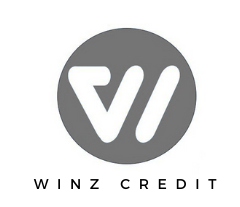Managing multiple unsecured debts can feel overwhelming, especially when each comes with different interest rates, payment dates, and terms. If you’re juggling credit card bills, personal loans, and other unsecured debts, a Debt Consolidation Plan (DCP) might be the solution you need to regain control of your finances.
A DCP allows you to combine multiple debts into a single, manageable loan with potentially better terms. This comprehensive guide will walk you through everything you need to know about DCPs in Singapore, helping you understand whether this financial strategy aligns with your needs and circumstances.
What is a Debt Consolidation Plan (DCP)?
A Debt Consolidation Plan is a financial product that combines multiple unsecured debts into one loan. Instead of managing several different payments each month, you make a single payment toward your consolidated debt.
The process works by taking out a new loan to pay off your existing debts. This new loan typically offers more favorable terms, such as a lower interest rate or an extended repayment period. Once approved, the lender pays off your existing debts directly, leaving you with just one monthly payment to manage.
How DCPs Work in Practice
When you apply for a DCP, the lender evaluates your total debt amount and financial situation. They then provide a loan that covers the full amount of your existing unsecured debts. This might include:
- Credit card balances
- Personal loans from banks or licensed moneylenders
- Outstanding medical bills
- Other unsecured debts
The key advantage lies in streamlining your debt management while potentially securing better interest rates than what you’re currently paying across multiple debts.
Benefits of a Debt Consolidation Plan
Simplified Payment Structure
Managing one monthly payment instead of multiple payments simplifies your financial obligations. You’ll have a single due date to remember, making it easier to stay on top of your repayment schedule and avoid late fees.
Potentially Lower Interest Rates
Many borrowers find that DCPs offer lower interest rates compared to high-interest credit cards or other unsecured loans. Even a small reduction in interest rates can result in significant savings over the life of your loan.
Improved Credit Score Management
When managed responsibly, a DCP can help improve your credit score. By consolidating debts and making consistent payments, you demonstrate financial responsibility to credit bureaus. Additionally, paying off multiple existing debts can help reduce your credit utilization ratio, which in turn positively impacts your credit score.
Reduced Financial Stress
Having a clear repayment plan with a single monthly payment can significantly reduce the stress associated with managing multiple debts. This mental clarity allows you to focus on other important aspects of your financial planning.
Fixed Repayment Terms
Unlike credit cards with variable interest rates, most DCPs offer fixed interest rates and repayment terms. This predictability makes it easier to budget and plan your finances effectively.
Who is a DCP Suitable For?
A Debt Consolidation Plan isn’t the right solution for everyone. Understanding whether you’re a good candidate requires an honest assessment of your financial situation.
Ideal Candidates for DCPs
Multiple High-Interest Debts: If you’re carrying balances on several credit cards or have multiple personal loans with varying interest rates, a DCP could help you secure better terms.
Stable Income: Lenders want to see consistent income that demonstrates your ability to make regular monthly payments. Employment stability is crucial for DCP approval.
Manageable Debt-to-Income Ratio: Your total monthly debt payments shouldn’t exceed 30-40% of your monthly income. This ratio shows lenders that you can handle the consolidated payment.
Commitment to Financial Discipline: A DCP only works if you’re committed to avoiding new debt while paying off the consolidated loan.
When to Consider Alternatives
If your debts already have low interest rates, a DCP may not provide significant benefits. Similarly, if you’re struggling to make minimum payments on existing debts, you should explore debt management programs or speak with a financial counselor first.
How to Apply for a DCP
Step 1: Assess Your Current Debt Situation
Create a comprehensive list of all your unsecured debts, including balances, interest rates, and monthly payments. This information will help you determine how much you need to consolidate and whether a DCP will provide meaningful benefits.
Step 2: Research Lenders and Compare Options
Different lenders offer varying terms for DCPs. Compare interest rates, fees, repayment periods, and eligibility requirements. Licensed moneylenders in Singapore can offer personalized solutions tailored to your specific circumstances.
Step 3: Gather Required Documentation
Most lenders will require:
- Proof of income (pay slips, employment letter)
- Bank statements
- Identification documents
- Details of existing debts
- Credit bureau report
Step 4: Submit Your Application
Complete the application process with your chosen lender. Be prepared to provide detailed information about your financial situation and debt consolidation goals.
Step 5: Review and Accept Terms
Once approved, carefully review the loan terms before accepting. Ensure you understand the interest rate, monthly payment amount, repayment period, and any associated fees.
Potential Drawbacks of DCPs
Associated Fees and Costs
DCPs often come with processing fees, administrative charges, or early repayment penalties. These costs can add up and should be taken into account when making your decision.
Extended Repayment Periods
Lower monthly payments might seem attractive, but extending your repayment period means paying more interest over time. Calculate the total cost of the loan to ensure it aligns with your financial goals.
Risk of Accumulating New Debt
Having available credit after consolidating debts can be tempting. Without proper financial discipline, you might be in a worse position than before.
Potential Impact on Credit Score
Initially, applying for a DCP might result in a temporary dip in your credit score due to the hard inquiry. However, responsible management should lead to an improvement in credit score over time.
Alternatives to Debt Consolidation Plans
Balance Transfer Credit Cards
Some credit cards offer promotional interest rates for balance transfers. This option is well-suited for borrowers with good credit who can repay the transferred balance before the promotional rate expires.
Personal Loans
A traditional personal loan from a bank or licensed moneylender can serve the same purpose as a DCP. Shop around for competitive rates and favorable terms.
Debt Management Programs
Non-profit credit counseling agencies offer debt management programs that negotiate with creditors on your behalf. These programs can reduce interest rates and create manageable payment plans.
Negotiate with Current Creditors
Sometimes, speaking directly with your current creditors can result in reduced interest rates or modified payment terms. Many lenders prefer to work with borrowers rather than risk default.
Making the Right Choice for Your Financial Future
Debt Consolidation Plans can be powerful tools for simplifying your financial life and reducing the burden of multiple debts. However, success depends on choosing the right plan and maintaining disciplined financial habits.
Before committing to a DCP, carefully evaluate your financial situation, compare options from multiple lenders, and ensure you understand all terms and conditions. Remember that consolidating debt is just the first step—maintaining good financial habits is essential for long-term success.
Our experienced professionals understand that everyone’s financial situation is unique. We’re committed to helping you find the best solution for your specific needs, whether that’s a DCP or an alternative approach. When you’re ready to take control of your debt and simplify your financial life, we’re here to support your journey toward financial stability.



